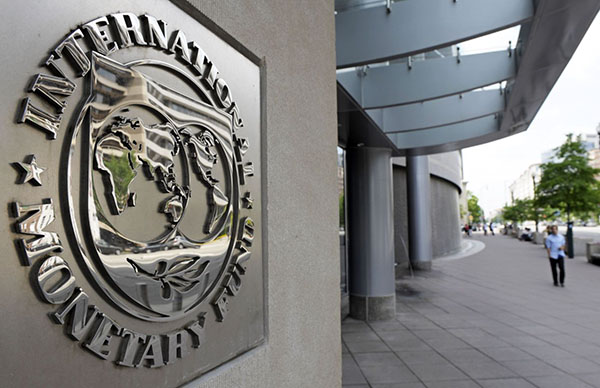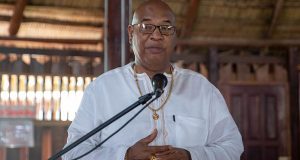WASHINGTON, District of Columbia April 23, 2019 (CMC) – The International Monetary Fund (IMF) says Jamaica’s public debt is projected to fall, below 100 percent of gross domestic product (GDP), for the first time, since 2000-1, to 98.7 percent, this financial year.
“Unemployment is near all-time lows, business confidence is high, and the economy is estimated to have expanded by 1.8 percent in 2018, buoyed by mining, construction and agriculture. International reserves are estimated to be comfortable, under a more flexible exchange rate,” the IMF said, after its executive board, yesterday, concluded the fifth review of the Stand-By Arrangement (SBA) for Jamaica.
In 2016, Jamaica had entered into a 36-month SBA, with a total access of US$1.66 billion, equivalent to 312 percent of the island’s quota in the IMF.
The IMF said that the Jamaican authorities continue to view the SBA as “precautionary, and to use it as an insurance policy, against unforeseen external economic shocks that could lead to a balance of payments need”.
It said that strong implementation of the reform program continues and, after commendable performance under two successive Fund arrangements, since May 2013, Jamaica’s public debt is projected to fall below 100 percent of GDP, for the first time since the financial year 2000-1.
The IMF said that all quantitative performance criteria, at end-December 2018, were met, and the structural benchmark, to table in Parliament amendments to the Bank of Jamaica (BOJ) Act, was completed in October 2018.
In December 2018, however, inflation was 2.4 percent, triggering staff consultation under the Monetary Policy Consultation Clause; it remained at the same level in February 2019.
The IMF said achieving higher growth calls for action, from both the public and private sector.
“For its part, the government of Jamaica’s 2019/20 budget is reducing the primary surplus by half a percent of GDP to 6.5 percent, without compromising the medium-term public debt anchor.
“The fiscal loosening supports growth and social spending, by providing resources for security, infrastructure, school meals and transportation. Further, the cuts to distortionary financial taxes will help support economic activity and job creation. The private sector, for its part, should capitalize on these fiscal measures to increase investment, and create new opportunities for advancing financial inclusion.”
The IMF said public sector governance shortcomings should be immediately addressed, saying this could be achieved, in part: by empowering the Integrity Commission; passing regulations to solidify a transparent and competency-based process for appointments to public bodies’ boards; migrating funds from the government’s commercial bank accounts to the TSA, and closing those accounts; and reducing the number of public bodies.
“Further monetary easing is needed to restore inflation to the midpoint of the four to six percent target range. The BOJ’s recent reduction in the reserve requirement on Jamaican dollar deposits, will help make policy accommodative, but further rate cuts are likely to be needed. In deciding further policy loosening, the BOJ should carefully assess all incoming data.
“The BOJ should also continue to reduce its foreign exchange (FX) market footprint, including by limiting its FX sales to disorderly market conditions; the need for further reductions in reserve requirements should be assessed,” the IMF advised.
The IMF said that strengthening coordination, between the BOJ and FSC, and increasing capacity in both institutions is paramount to maintain financial sector stability.
It said risk-based supervision of financial conglomerates requires the methodical collection, sharing, and monitoring of data and lending standards. Joint work among the regulators will be required to draft legislation for the special resolution regime and to address AML/CFT (anti-money laundering/combating the financing of terrorism) deficiencies.
“An ongoing commitment to strengthen domestic institutions is needed, as Jamaica prepares to exit from the Fund’s financial arrangement, later this year. Laying the groundwork for the Fiscal Council, amendments to the BOJ Act for its operational autonomy, and a disaster resilience policy framework are steps in this direction.
“Overhauling the public sector compensation structure, by streamlining allowances and making it performance-based, prioritizing and reducing government functions and size, and upgrading public bodies’ governance, are critical for fiscal sustainability,” the IMF added.
 Pride News Canada's Leader In African Canadian & Caribbean News, Views & Lifestyle
Pride News Canada's Leader In African Canadian & Caribbean News, Views & Lifestyle





